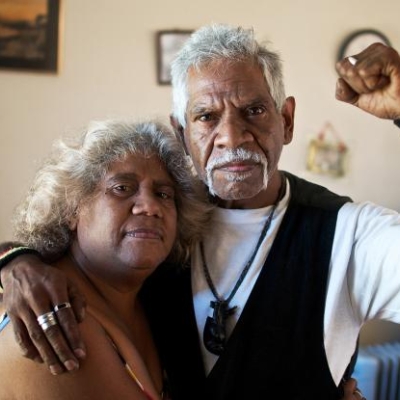Refine results
-
Disability Rights1 March 2018Media Release
25 Years of the Disability Discrimination Act
The UN Special Rapporteur on the rights of persons with disabilities, Ms Catalina Devandas Aguilar, will be joining the Australian Human Rights Commission for a unique event to mark the 25th anniversary of the Disability Discrimination Act 1992 (Cth) (DDA) on 1 March, 2018. The event – a panel discussion on the successes and challenges of the DDA – will be hosted at PwC’s Sydney headquarters… -
Sex Discrimination26 February 2018Media Release
Appalling behaviour at university residential colleges
As students and staff around Australia return to university, the Sex Discrimination Commissioner Kate Jenkins is urging Australian universities to continue the work needed to prevent sexual harassment and sexual assaults on campus. “Since the release of the landmark Change the course: National report on sexual assault and sexual harassment at Australian universities, my team and I have met… -
Employers13 July 2015Webpage
Supporting working parents: a toolkit for employers
Supporting pregnant employees, employees on parental leave and working parents makes great business sense because it helps: Improve retention of employees; Attract new talent; Improve business productivity; Foster a positive organisational culture; Promote diversity and innovation and Improve compliance with legal obligations This toolkit is a practical guide for employers. It promotes -
Aboriginal and Torres Strait Islander Social Justice16 February 2018Media Release
National talks for the Wiyi Yani U Thangani (Women’s Voices) project begin in Victoria
The first in a series of community visits for the Wiyi Yani U Thangani (Women’s Voices) project will begin in Victoria next week. The Wiyi Yani U Thangani project is being led by the Aboriginal and Torres Strait Islander Social Justice Commissioner June Oscar AO to hear from Indigenous women and girls around the country. “We’re looking forward to starting our national talks in the regional… -
Complaint Information Service20 February 2014Webpage
The Complaint Process
The Australian Human Rights Commission is an independent third party which investigates complaints about discrimination and human rights breaches. It does not act as an advocate or legal representative for a party to a complaint. The complaint process is simple, free and flexible. Please click on the links below to view the outline of each one of them. -
Sex Discrimination30 August 2018Media Release
Commissioner appears before CEDAW Committee at the UN
Tuesday, 20 July 2010 The Sex Discrimination Commissioner, Elizabeth Broderick, has appeared before the United Nations Committee on the Convention on the Elimination of All Forms of Discrimination against Women in New York this week. Enshrined within the Convention on the Elimination of All Forms of Discrimination against Women are the key principles of equality and an agenda for national… -
27 March 2015Book page
6 Appendix A – submissions
The Human Rights Commissioner received submissions from the following people and organisations. 1. Ken Grundy 2. Tim Walsh 3. Judith Sloan, The Australian 4. Rodney Crisp – The right to life and death 5. Freedom 4 Faith 6. Rodney Crisp – A national constitutionally-entrenched bill of rights 7. Anglican Church Diocese of Sydney 8. World Society of Victimology 9. Central Australian Women’s… -
Legal26 March 2015Submission
Australia’s Second Universal Periodic Review
Click here for the web version of the document. -
Aboriginal and Torres Strait Islander Social Justice30 January 2019Webpage

About Aboriginal and Torres Strait Islander Social Justice
Learn how the Human Rights Commission works to ensure the rights of Aboriginal and Torres Strait Islander people are promoted and protected. -
17 September 2013Book page
Who we are
The role of the Australian Human Rights Commission is to see that human rights and fundamental freedoms are understood and respected in law, policy and practice. The Commission is independent from government, with a legislative mandate, and recognised internationally as an ‘A Status’ National Human Rights Institution. We strive to resolve complaints, encourage positive law reform and build a… -
17 September 2013Book page
Who we are
The role of the Australian Human Rights Commission is to see that human rights and fundamental freedoms are understood and respected in law, policy and practice. The Commission is independent from government, with a legislative mandate, and recognised internationally as an ‘A Status’ National Human Rights Institution. We strive to resolve complaints, encourage positive law reform and build a… -
Legal9 September 2013Submission
Strengthening Human Rights Education in the Civics and Citizenship Curriculum Year 3 to Year 10
-
Legal9 September 2013Submission
Strengthening Human Rights Education in the Economics and Business Curriculum: Years 5-10
-
Commission – General29 August 2013Webpage
Home
The Declaration on the Rights of Indigenous Peoples (the Declaration) affirms the minimum standards for the survival, dignity, security and well-being of Indigenous peoples worldwide and enshrines Indigenous peoples’ right to be different. The Declaration was adopted by the General Assembly of the United Nations in September 2007. This was the culmination of more than 20 years of negotiation… -
Employers19 February 2015Quick Guide
Sexual Harassment
Sexual harassment is any unwanted or unwelcome sexual behaviour where a reasonable person would have anticipated the possibility that the person harassed would feel offended, humiliated or intimidated. It has nothing to do with mutual attraction or consensual behaviour. Examples of sexual harassment include: staring, leering or unwelcome touching suggestive comments or jokes unwanted… -
Employers18 February 2015Quick Guide
Inherent Requirements
Discrimination in employment because of a person’s age or disability is against the law in many circumstances. However, it may not be unlawful to refuse to employ a person if, because of their age or disability, they are unable to carry out the inherent requirements – or essential duties – of the job. The inherent requirements of a job will vary depending on what the job is. They may include… -
Employers18 February 2015Quick Guide
Harassment
Harassment can be against the law when a person is treated less favourably on the basis of certain personal characteristics, such as race, sex, pregnancy, marital status, breastfeeding, age, disability, sexual orientation, gender identity or intersex status. Some limited exemptions and exceptions apply. Harassment can include behaviour such as: telling insulting jokes about particular racial… -
Employers17 February 2015Quick Guide
Dating in the Workplace
It is common for relationships and attractions to develop in the workplace. As an employer, it is important to ensure that these circumstances do not lead to incidents of sexual harassment. Sexual harassment is any unwanted or unwelcome sexual behaviour where a reasonable person would have anticipated the possibility that the person harassed would feel offended, humiliated or intimidated. It… -
LGBTIQ+13 July 2018Webpage

Background and terminology
Protecting the human rights of people born with variations in sex characteristics in the context of medical interventions Background In Australian, some people born with variations in sex characteristics may be subject to medical interventions without themselves providing informed consent. It has been reported that this may be done where there is no medical need - for example, it may take… -
Employers13 February 2015Quick Guide
Complaints made to the Australian Human Rights Commission
A complaint of discrimination or harassment can be made to the Australian Human Rights Commission about an issue covered by federal anti-discrimination law. Under the Australian Human Rights Commission Act, the Commission can also investigate and resolve complaints of discrimination, harassment and bullying in employment based on a person’s criminal record, trade union activity, political…
